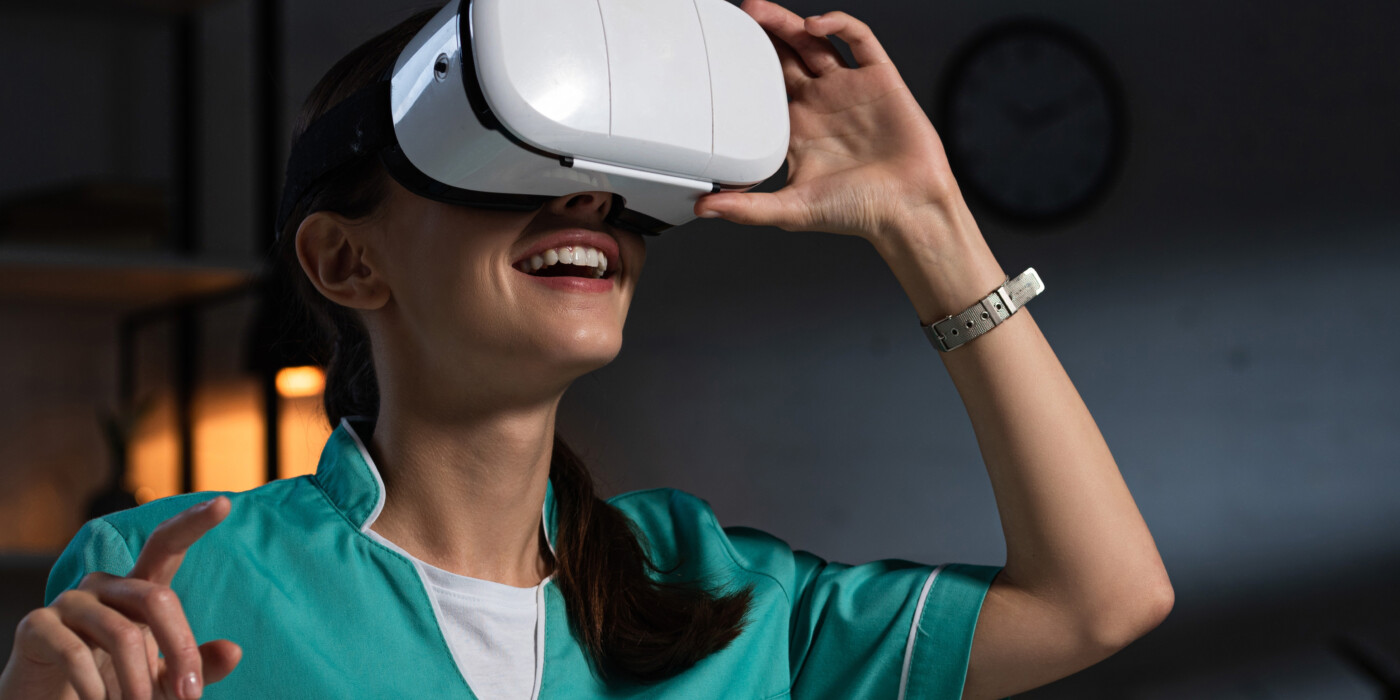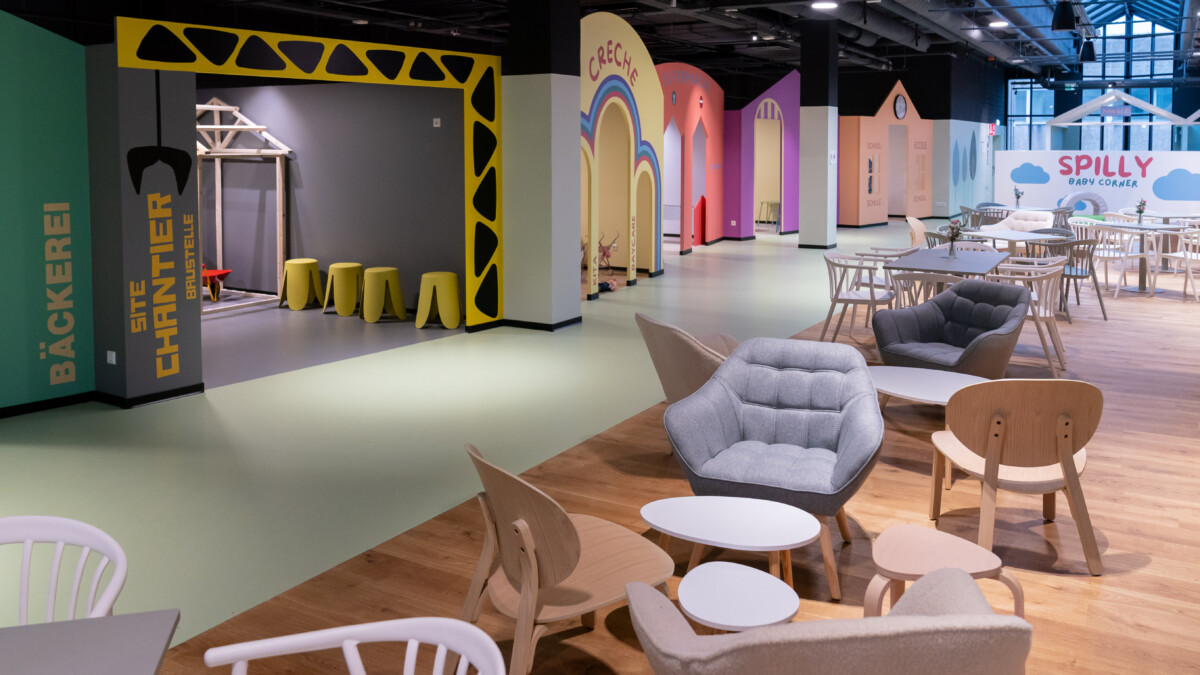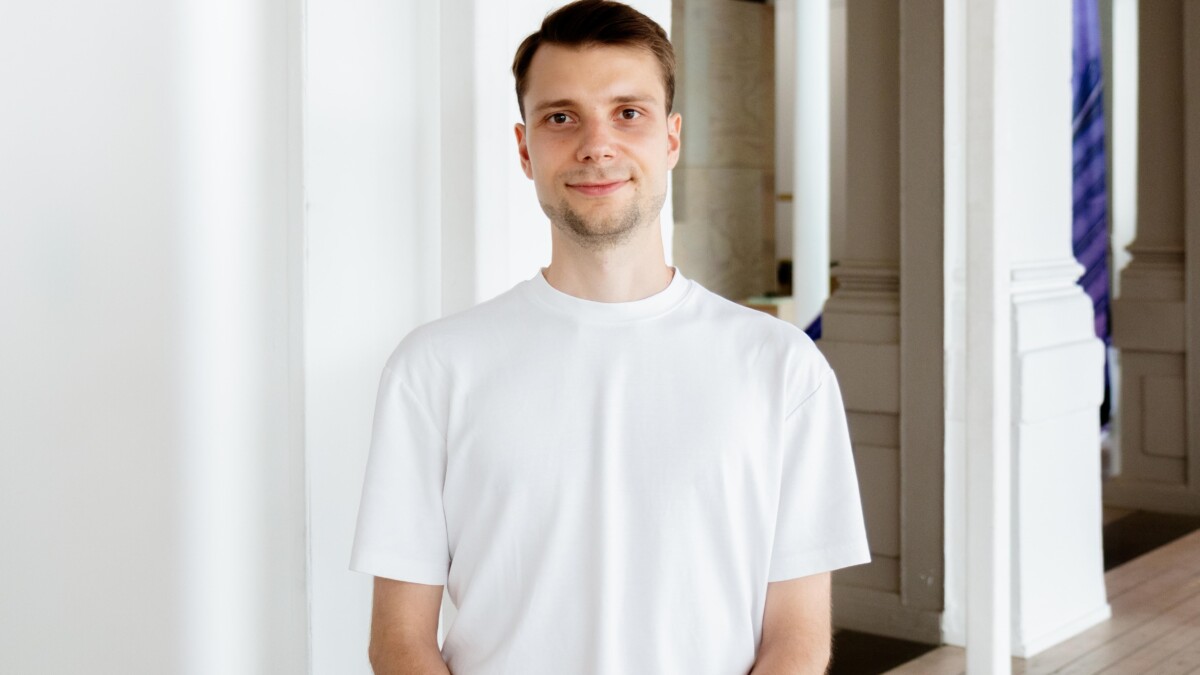Merkur highlights the growing momentum in Luxembourg’s entrepreneurial landscape by showcasing innovative startups supported by key national initiatives. Featured are startups based at the House of Startups, powered by the Chamber of Commerce, and the Luxembourg City Incubator (LCI), a joint initiative of the Chamber of Commerce and the City of Luxembourg designed to support and accelerate promising ventures. Among the featured entrepreneurs is Daniil Andreev, co-founder and CPO of PsyTechVR, who shares insights into building bridges between people and care.
At its core, PsyTechVR was built around a simple but powerful question: what if we could bring effective, evidence-based mental health care directly to the people who need it, wherever they are?
Our goal has never been just to build VR software, it’s to build bridges between people and care. We believe mental wellness should be accessible, adaptive, and deeply human, not limited by geography, cost, or stigma. PsyTechVR brings together virtual reality, artificial intelligence, and clinical science to create immersive environments where individuals can safely explore emotions, face fears, and learn coping skills through experience, not just instruction.
Today, PsyTechVR works closely with clinicians, researchers, and universities to develop modules for anxiety, PTSD, and cognitive rehabilitation. Each session is grounded in validated psychological frameworks such as CBT/EMDR and exposure therapy, but delivered in a format that feels intuitive, visual, and engaging.
What sets PsyTechVR apart is not just the latest technology, it’s the philosophy. We don’t believe technology should replace the therapist; it should amplify the reach of empathy. AI-driven environments allow therapists to personalize sessions instantly, while real-time data analysis helps them understand how a patient is responding, both emotionally and physiologically. This creates a feedback loop where care becomes dynamic and responsive rather than static and one-size-fits-all.
Looking ahead, we envision PsyTechVR as part of a global wellness infrastructure, a system that supports clinicians, empowers patients, and extends mental-health access to millions who currently live without it. Whether it’s helping a veteran confront trauma, a senior maintain memory, or a student manage anxiety, the mission remains constant: to use immersive technology to make mental health care more personal, more effective, and more human.

Peter (Oyhkman, co-founder and CEO, editor’s note) and I have known each other for more than ten years. We’re both tech people and entrepreneurs who have spent our careers building things that make complex ideas more practical.
Peter has been in technology since the 1990’s. He’s founded and sold several software companies, led large teams, and today also co-chairs the VR/AR Association, helping shape how immersive tech is used across industries. My own background is in VR product development, I’ve spent the past few years launching and scaling VR and AR products, especially in education and mental health. In 2020, I built a VR education lab, and a couple of years later Peter and I started PsyTechVR together.
The actual idea came from my mother, Inna, who’s been a CBT therapist for over 16 years. One day she told us about a patient with acrophobia, a fear of heights. The patient worked in a high-rise building and couldn’t stand being near the windows. During therapy, my mother used imaginal exposure, where patients try to imagine the situation that scares them. But the problem is that imagination isn’t always enough. The patient couldn’t feel the fear fully because he wasn’t there.
That night at dinner, Inna told us about the session. She said something like, “If only my patients could go to these places safely, without leaving the office.” That clicked. What if VR could take people exactly where they’re afraid to go, but in a safe, controlled way?
Both of us were already working in VR, Peter through his tech company, and me as a university VR lab director, so the idea immediately felt real. Within months, we started building the first prototype. That’s how PsyTechVR was born: out of one therapist’s frustration, one dinner conversation, and a shared belief that technology can help people face what they fear.
The mental health crisis has reached unprecedented levels globally, with therapy waitlists growing and traditional treatment methods struggling to meet demand. Simultaneously, VR technology has matured from experimental to clinically validated, with healthcare providers now actively seeking evidence-based digital tools. This convergence creates a unique window where therapists are ready to adopt immersive solutions, and the technology is finally robust and affordable enough to deliver them. VR hardware has also crossed critical thresholds in accessibility, comfort, and affordability. What cost thousands just ten years ago is now within reach of clinical practices. More importantly, therapists and patients alike have become comfortable with digital health solutions, the pandemic accelerated digital adoption in healthcare by nearly a decade. Replacing imaginal therapy with VR therapy is no longer a « futuristic concept » but a practical, implementable solution.
Waiting would mean entering a more crowded market with established competitors. Starting now allows us to shape standards, build clinical evidence, and establish partnerships while the category is still being defined.
We saw that Luxembourg offers the perfect launchpad for a European HealthTech scale-up with its’ strategic location in the heart of Europe, enabling easy access to major markets, and highly qualified multilingual talent pool with expertise in both technology and healthcare. Luxembourg also has a robust funding ecosystem with active VCs and substantial grant opportunities for health innovation, and the Fit 4 Start program is a great example of digital health innovation support from a government that wishes to make Luxembourg a hub for companies of the future.
We’ve already launched our commercial platform and the response from therapists has been overwhelmingly positive. We’ve also completed several clinical studies with large, reputable universities, and the results validate our approach, they demonstrate that VR therapy is not just effective but often preferred by both therapists and patients, over traditional imaginal therapy.
Now we’re at an exciting inflection point. We’re actively engaging with VCs to secure funding that will help us significantly boost our market visibility and brand presence across Europe, accelerate our sales and customer acquisition efforts, and continue expanding our therapy scenario library to cover more therapeutic applications and use cases.
With our positive clinical data from reputable university studies in hand, we’re ready to pursue CE marking as a medical device. This is a critical step that will position us for broader European market access with regulatory credibility and open up eventual reimbursement pathways, making our solution accessible to far more patients. It also gives us strong competitive differentiation as a clinically validated, certified solution.
When I think about what PsyTechVR will look like in ten years, I can’t separate that vision from the trajectory of two powerful forces shaping our world right now: immersive technology and artificial intelligence. Together, they’re redefining what it means to experience therapy, self-care, and human connection. A decade from now, that transformation will be complete. Right now, we only can see a glimpse of what it will be in 10 years.
By then, the hardware itself will barely resemble today’s bulky headsets. The glasses we’ll wear will be sleek, light, and affordable, much less expensive than a smartphone. In fact, they’ll probably replace sunglasses, reading glasses and smartphones for most people. Messages, navigation, entertainment, even work meetings will happen through discreet AR lenses. For mental health, this shift is enormous. When immersive technology becomes as common as a phone, therapy and emotional-wellness tools will be literally within reach for anyone. You won’t need to visit a clinic or schedule an appointment, you’ll be able to step into a calming, personalized environment wherever you are. Mental wellness will be as accessible and natural as checking the weather.
Artificial intelligence will amplify this evolution in ways that are only beginning to emerge. Even today, PsyTechVR can generate 3D therapeutic environments in 30-45 seconds. Ten years from now, those experiences will be indistinguishable from reality, guided by AI systems that understand not only what the user sees, but how they feel. These systems will adjust the light, tone, dialogue, and pacing of a session based on real-time feedback from biosensors and behavior patterns. A person dealing with social anxiety, for example, might find themselves in a virtual café where AI-driven avatars respond with empathy, adapting their expressions and speech as the user grows more comfortable. The experience will feel deeply personal, intuitive, safe, and alive. I think every person will have a personal AI attached to him/her from the day of birth.
Of course, not all therapy will, or should, be automated. The future will demand careful oversight and regulation. I expect that simpler, structured interventions such as relaxation training or mild anxiety management will be entirely managed by AI systems, perhaps even approved by organizations like the FDA. Clinicians, on the other hand, will focus on complex cases, PTSD, trauma, or chronic disorders that require nuanced human understanding and interactions. The therapist’s role will evolve less repetitive instruction, more interpretation, personalization, and care. They’ll act as designers and supervisors of treatment, collaborating with AI rather than being replaced by it.
Beyond mental health, immersive technologies will profoundly affect how we age and maintain our cognitive abilities. We’re already seeing remarkable results using VR/AR for memory care and attention training in seniors. In ten years, such applications will be part of daily life. Older adults will use lightweight VR/AR glasses to exercise their memory, navigate virtual communities, and even revisit places from their past in vivid, emotionally engaging detail. Physical therapy will merge with cognitive training, allowing movement, balance, and neuroplasticity to be strengthened together inside adaptive virtual spaces. For many, this will mean not just longer lives, but richer, more connected ones.
The PsyTechVR of the future will be more than an application; it will be an ecosystem. A seamless integration of AR/VR, AI, biosensors, and behavioral analytics that together form a continuous feedback loop of care. The system will learn from every session, millions of anonymous interactions, refining its understanding of human emotion and mental health across cultures and contexts. The result will be therapy that feels less like “treatment” and more like companionship: intelligent, responsive, and available whenever it’s needed.
But for all the technological progress, PsyTechVR’s mission will remain deeply human. The tools we use will change; empathy will not. Our goal has never been to replace clinicians or remove humanity from therapy—it’s to extend it, to make it accessible to those who might never have reached it otherwise. Ten years from now, the line between technology and compassion will be thinner than ever. What we call “virtual” today will simply be another space where people can heal, grow, and rediscover balance in their lives.
We’re changing two big things.
The first one is obvious; we’re improving the lives of people struggling with anxiety and trauma. PsyTechVR gives psychologists and therapists a practical digital tool that helps them deliver real, measurable relief through VR therapy. It’s not about replacing human care; it’s about giving professionals new ways to reach patients faster and more effectively.
The second change goes a bit deeper. We’re challenging the stigma within psychology itself, the hesitation or even fear around modern digital tools. Many therapists still believe technology makes therapy less human. We’re proving the opposite.
That’s why we work with universities and colleges around the world. We bring PsyTechVR into classrooms so future mental health professionals can experience VR therapy firsthand, try it, play with it, understand that it’s not complicated or cold, but engaging and powerful. When they start seeing clients, they’ll already think of VR therapy as a natural extension of their toolkit.
In a way, our business is a bit like the car industry. You can talk about a new car all day, but the moment someone sits behind the wheel, that’s when the sale happens. It’s the same here: once a therapist puts on a VR headset, they feel what this method can do. That’s when change really begins.







